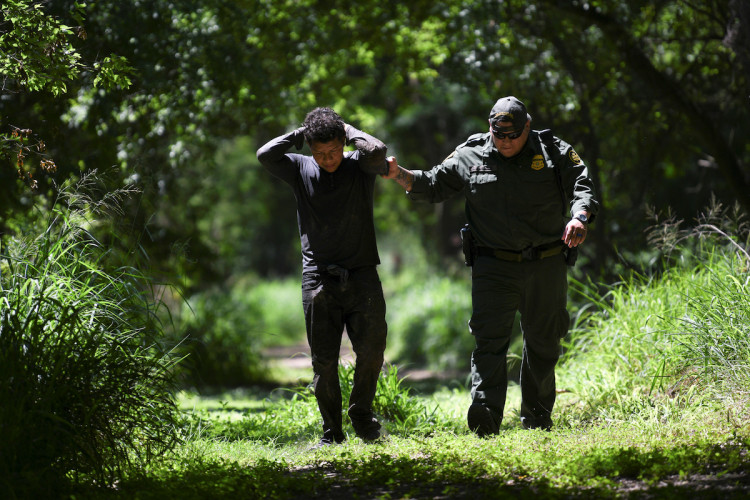On December 27, U.S. Secretary of State Antony Blinken, accompanied by American officials, traveled to Mexico to discuss and potentially implement policies and enforcement actions with the Mexican government aimed at curbing the influx of illegal immigrants into the United States.
This diplomatic move comes as approximately 6,000 individuals from Latin American countries like Venezuela and Cuba are traversing through Chiapas in southern Mexico, heading toward the U.S.-Mexico border. Many of these individuals, including children, are trekking along highways and carrying banners advocating for an end to poverty. They are still about 1,600 kilometers from the U.S.-Mexico border, and Mexican police have not taken any action to stop them.
Mexican President Andrés Manuel López Obrador has expressed willingness to assist the United States. He also hopes the U.S. will provide more developmental aid to Cuba and Venezuela, the largest sources of migrants to the U.S., and consider reducing or eliminating sanctions and blockades.
In October, the U.S. suspended sanctions against the Venezuelan state oil company and related entities, subsequently strengthening cooperation through prisoner exchange agreements and somewhat easing tensions between the two countries. However, relations with Cuba show no signs of improvement. The U.S. continues to enforce over 60 years of sanctions and blockades against Cuba, causing an estimated $1.3 trillion in economic loss and a significant humanitarian crisis. This year, the U.S. also continued to list Cuba as a state sponsor of terrorism, imposing comprehensive sanctions on its military, economic aid, tariffs, and financial sectors.
Traveling through Mexico has been the primary route for Latin American illegal immigrants entering the U.S. In the first 11 months of this year, about 680,000 illegal immigrants passed through Mexico on their way to the U.S.
The Biden administration hopes the Mexican government will implement strict measures to prevent illegal immigrants from entering at its southern border or restrict their use of public transportation to cross Mexico.
The Biden administration is under pressure, mainly from Republicans, to expedite solutions to the illegal immigration issue. To garner Republican support for aid to Ukraine, the Biden administration must act to stem the rising tide of illegal immigrants. In November, the number of illegal immigrants detained at the U.S.-Mexico border was 6,370, marking the fourth consecutive month of increases.
As December approached and rumors spread within Mexico of the U.S. closing all entry points at the U.S.-Mexico border and implementing an appointment system for entry, despite clarifications from the U.S. Embassy in Mexico, many believed these claims, leading to a surge in illegal crossings. On average, over 10,000 individuals per day were detained by U.S. authorities in December.
Many illegal immigrants seek asylum and refugee status in various states upon entering the U.S., leading to strained local resources and increased social security risks. In August, Massachusetts declared an emergency due to the number of asylum seekers exceeding its capacity, prompting federal aid from the Biden administration. Chicago, Illinois's largest city, even converted police stations and parks into shelters to accommodate the overwhelming number of asylum seekers, with plans to transform vacant schools into shelters.
Luis García Villagrán, a migrant rights activist from Mexico and the organizer of the 6,000-person caravan, opposes the Biden administration's tightening of immigration policies due to domestic political issues. He believes such actions only harm those impoverished individuals seeking to change their lives through immigration.




